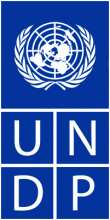Resource information
This publication, ‘Island Innovations – UNDP and GEF: Leveraging the Environment for the Sustainable Development of SIDS’, demonstrates that far from succumbing to these challenges, SIDS have time and again risen to the task of managing their fragile environments to meet their sustainable development goals. The examples included in this publication show that SIDS are confronting the challenges of sustainability and resilience head-on through a broad range of actions, including conservation and sustainable use of critical marine and coastal resources, climate change mitigation, adaptation efforts and more. The disposal and management of waste (including hazardous waste) are also a challenge for many SIDS, where the effects of poor planning in such small, interconnected environments quickly damage the ecosystem. These and other unsustainable land management issues have caused serious land degradation problems on islands, affecting food security and increasing vulnerability to the effects of climate change.




